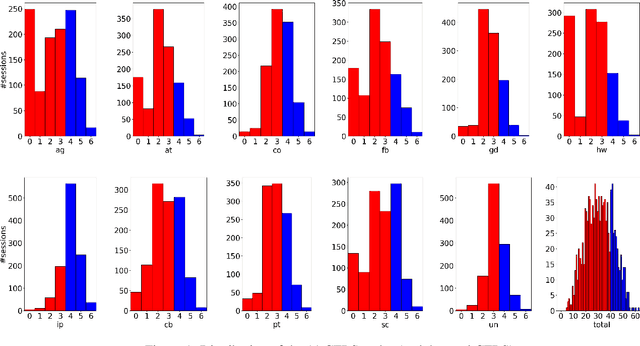An Automated Quality Evaluation Framework of Psychotherapy Conversations with Local Quality Estimates
Paper and Code
Jun 15, 2021



Computational approaches for assessing the quality of conversation-based psychotherapy, such as Cognitive Behavioral Therapy (CBT) and Motivational Interviewing (MI), have been developed recently to support quality assurance and clinical training. However, due to the long session lengths and limited modeling resources, computational methods largely rely on frequency-based lexical features or distribution of dialogue acts. In this work, we propose a hierarchical framework to automatically evaluate the quality of a CBT interaction. We divide each psychotherapy session into conversation segments and input those into a BERT-based model to produce segment embeddings. We first fine-tune BERT for predicting segment-level (local) quality scores and then use segment embeddings as lower-level input to a Bidirectional LSTM-based neural network to predict session-level (global) quality estimates. In particular, the segment-level quality scores are initialized with the session-level scores and we model the global quality as a function of the local quality scores to achieve the accurate segment-level quality estimates. These estimated segment-level scores benefit theBERT fine-tuning and in learning better segment embeddings. We evaluate the proposed framework on data drawn from real-world CBT clinical session recordings to predict multiple session-level behavior codes. The results indicate that our approach leads to improved evaluation accuracy for most codes in both regression and classification tasks.
 Add to Chrome
Add to Chrome Add to Firefox
Add to Firefox Add to Edge
Add to Edge